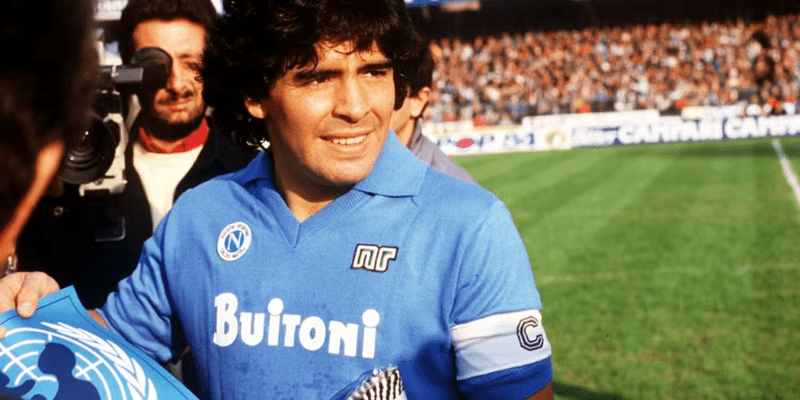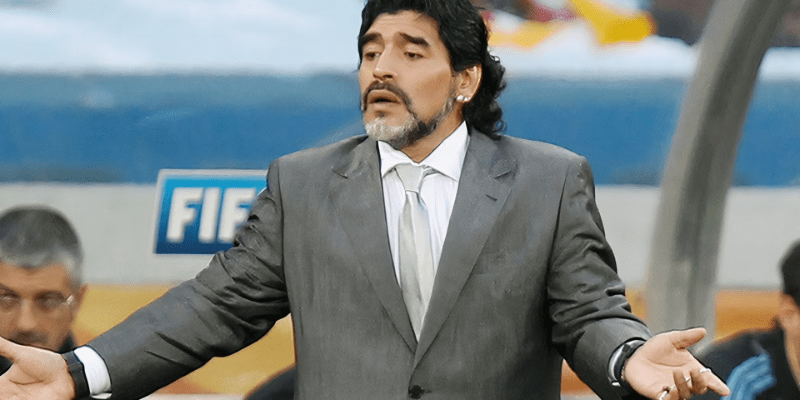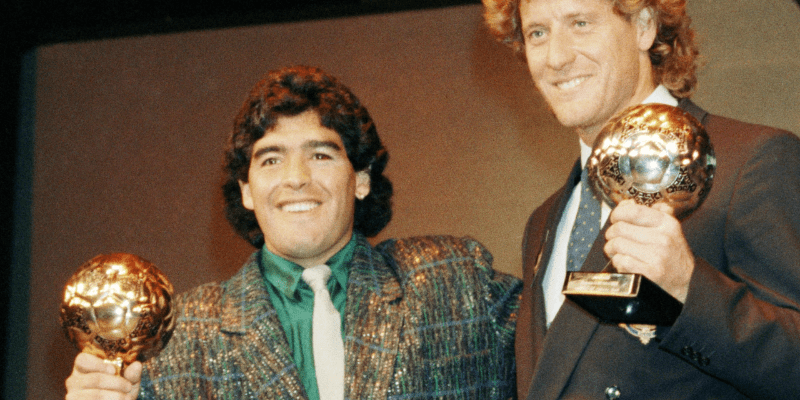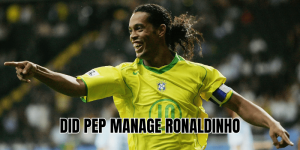Yet for all his genius—his dribbles, audacious passes, and that divine performance in Mexico 1986—he never won the Ballon d’Or. It’s one of football’s deepest ironies: a player often called the best in the world, yet denied one of its most prestigious individual awards. In this article, ZaneyStrike will guide you through the why, the what-ifs, and the legacy surrounding why Maradona didn’t win Ballon d’Or.
The Origin Story: Ballon d’Or’s Rules That Blocked Legends

To understand Maradona’s absence from the Ballon d’Or winners’ list, we must dig into the origins and evolution of the award itself.
Ballon d’Or: A European-Only Trophy (1956–1994)
When French magazine France Football launched the Ballon d’Or in 1956, it was conceived as the “European Footballer of the Year” award. Only players of European nationality, or more precisely, players. This regional restriction meant that non-European stars—no matter how scintillating or dominant—could not win. That included icons like Pelé and Maradona.
For decades, great South American talents were outright disqualified.
The rules were clear: your passport mattered more than your feet.
The 1995 Rule Change: Opening the Door But Too Late
In 1995, France Football altered the eligibility criteria: non-European players became eligible if they plied their trade at European clubs. That year, George Weah (Liberia) became the first non-European to win the Ballon d’Or.
But by then, Maradona was already past his prime (he would receive a retrospective honorary Ballon d’Or d’Honneur that year). Thus, the change came too late to benefit his peak years. But Maradona’s era had already passed.
Honorary Recognition but Not the Real Deal
In 1995, in recognition of the injustice, Maradona was given a Ballon d’Or d’Honneur (a kind of lifetime achievement award). While symbolic, it could never substitute for what might have been — a Ballon d’Or won in competition at the height of his power.
Likewise, Pelé would later be honored in 2013 with a similar award.
Maradona’s Peak Years — Best Chances Missed
Let’s imagine the alternative path, where Maradona could have been eligible. Which seasons or moments would have given him a shot?
Mexico 1986: The Greatest Show on Earth
Maradona’s performance in the 1986 World Cup—especially in the quarterfinal vs England with “Goal of the Century” and the controversial “Hand of God”—cemented his status as the world’s most scintillating footballer.
He carried Argentina to the title almost single-handedly. Had Ballon d’Or rules been open then, 1986 would have been his strongest case.
Napoli Years:, Maradona turned the club from mid-table middling into title contenders. By winning Serie A in 1987 and again in 1990, along with a UEFA Cup (1989), he left an indelible legacy in Italian football.
Between 1987 and 1990, Maradona would have had multiple lines in a Ballon d’Or voting sheet. Indeed, some retrospective calculations suggest he might have challenged for recognition in 1986, 1987, 1989, and 1990.
Why He Still Might Fall Short Even If Eligible
Even in a hypothetical scenario of full eligibility, arguments remain:
- Club exposure and prestige: Maradona’s Napoli was not yet a perennial UCL contender, so he lacked the constant exposure that players at Real Madrid, Barcelona, or AC Milan enjoyed.
- Champions League factor: European success often gains weight in votes, and Maradona didn’t have a Ballon d’Or–worthy continental trophy haul in the years readers typically favor.
- Competition: He played among peers like van Basten, Platini, and Hugo Sánchez — heavyweights whose careers overlapped his peak. Even an eligible Maradona might face stiff competition.
Why Maradona Didn’t Win Ballon d’Or — The Core Reasons

Putting it all together, here are the core reasons behind why Maradona didn’t win Ballon d’Or:
- Eligibility rules disqualified non-Europeans until 1995
- For nearly four decades, the Ballon d’Or was reserved exclusively for European players. This systemic rule prevented Maradona.
- Too late change in 1995
- By the time non-European players became eligible (if playing at European clubs), Maradona was already well into decline. His peak years had passed.
- Honorary award is symbolic, not competitive
- While Maradona received the Ballon d’Or d’Honneur in 1995, this was retrospective recognition, not a competitive award earned in his prime.
- Era and competition dynamics
- Club prestige, exposure, and competition.
What If — A Speculative Reimagining
It’s tempting to reconstruct the history we didn’t get. In alternate timelines:
- Maradona wins Ballon d’Or in 1986 for World Cup brilliance.
- He again claims it in 1987 or 1990 after transforming Napoli.
- He matches or even rivals the Ballon d’Or tallies of European superstars.
Some modern retrospectives and “what-if” rankings suggest that Maradona would have claimed at least two or three Ballon d’Ors had he been eligible.
Such extrapolations are purely speculative, but they underscore how the rules deprived football history of a more fully realized recognition of one of its greatest.
The Wider Impact: The Bias of Awards & Recognition
Maradona’s exclusion from Ballon d’Or is more than historical trivia—it’s a lens into how awards, power, and bias shape legacies:
- Geographic and institutional bias: The criteria favored European players and leagues for decades.
- Delayed justice vs real justice: Honorary awards help, but they cannot rewrite the competitive story.
- Myth vs recognition: Maradona’s legacy thrives not because of Ballon d’Ors, but in trophies, stories, and folklore.
This case invites us to question: how many other greats were denied by the system? Or how many modern players benefit from expanded eligibility and media saturation?
Comparison: Other Greats Who Never Won

Maradona isn’t alone in this statistical oddity. Other legends who never held a Ballon d’Or include:
- Pelé — excluded for similar nationality reasons, later honored.
- Zico, Romário, Hugo Sánchez, Garrincha — whose careers either preceded eligibility or lacked European platform.
- More modern names: Roberto Baggio, Paolo Maldini, Gianluigi Buffon — players who competed and lost, not because of rules but competition.
These cases highlight how both structural barriers and mere marginal misfortune shape the record books.
Conclusion
Why Maradona didn’t win Ballon d’Or lies less in failure and more in exclusion. It wasn’t about ability — his talent shone brighter than many who did win. It was about rules, timing, and institutional limitations.
In this article, ZaneyStrike has walked you through the eligibility rules, the potential eras where Maradona might have shone in votes, and the speculative “what-ifs” that still stir debate among football fans. The Ballon d’Or absence doesn’t diminish his legacy — if anything, it underscores how greatness may transcend awards.
If you enjoyed this deep dive, explore more articles on Ballon d’Or controversies, player legacies, or “greatest players who never won the trophy.” Share, comment, and stay with ZaneyStrike for the stories that merge passion and fact in football’s living history.






